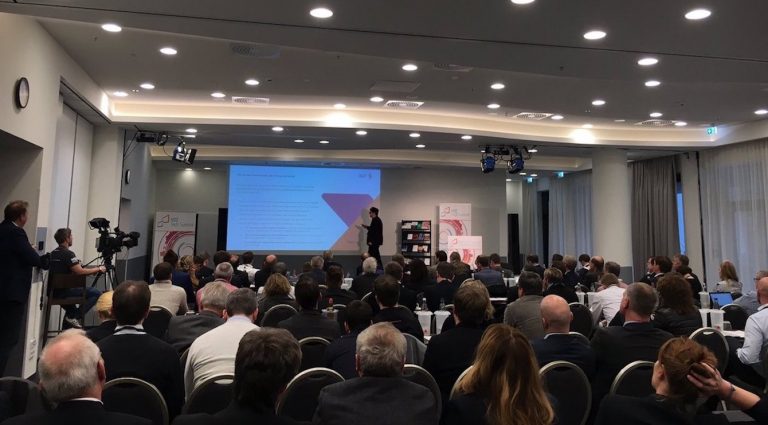
Review of the 6th VDZ Tech Summit – How does blockchain change the publishing industry?
Against this background, the Tech Summit offered the participants a focused exchange of ideas with leading decision-makers from the national and international publishing IT and business with the concept of various sessions. In addition, there was the opportunity to focus on management or IT experts in the lectures and to decide on one of two thematic sessions depending on the field of interest.
In more than a dozen panels, speakers from Madsack, Heise Medien, but also from the Ullstein book publishers and the food group Dr. Oetker presented their best-practice examples. In addition to CMS, artificial intelligence, and data-driven publishing, the main focus was on CTO work in companies and Blockchain technologies.
In addition to Christian Schultze-Wolters, Director Blockchain Solutions at IBM, and Ingo Ruebe, CEO of BOTlabs, civil co-founder Christine Mohan (USA) presented herself with the topic of blockchain. She explained how her company would like to use blockchain technology to act as a service provider for media companies, for example in marketing and licensing. “All houses are currently dealing with blockchain”, said Christine Mohan, predicting a “new economy” for journalism. This is not a story about new revenue models that make the business with journalistic content appear better. It is about nothing less than ensuring the continued existence of journalism “for generations to come”.
At least that is the promise of Christine Mohan and Civil. The young start-up from Brooklyn is working on the “new economy of journalism”. It wants to use blockchain technology to solve several publisher problems at once, says Christine Mohan – the emancipation of advertising revenues, the efficient licensing of content to third parties, and the restoration of trust among readers.
But there is much to explain before that. First, editors must become part of the Civil Network and commit themselves to the “Civil Constitution”, a kind of set of rules that admonishes the correct handling of sources or outlaws disinformation and fake news. 15 newsrooms, as Civil calls them, are already on board. “We are concentrating on the permanently underfinanced areas of journalism”, says Christine Mohan: local, investigative, international, and political reporting. For these departments, Blockchain is interesting simply because unpleasant stories, once they are in Blockchain, can no longer be changed or manipulated. The community is expected to grow to up to 1,000 newsrooms within the next year. When asked whether German publishers were also involved, Mohan replies: “We have already exchanged ideas with Axel Springer and with Der Spiegel”. However, it cannot yet announce any cooperations here, just as much: “At the moment, all publishers are dealing with Blockchains”. Christine Mohan will therefore also be driving Civil’s business from Berlin starting next year.
However, everyone agreed that publishers should focus primarily on the needs of their customers. Technologies such as Blockchain, machine learning or automated journalism should always be used where they generate added value for the respective target group. If, for example, algorithms can complement or optimize the work, they should use them. New technologies offer many opportunities, even if one should not follow every trend blindly.

